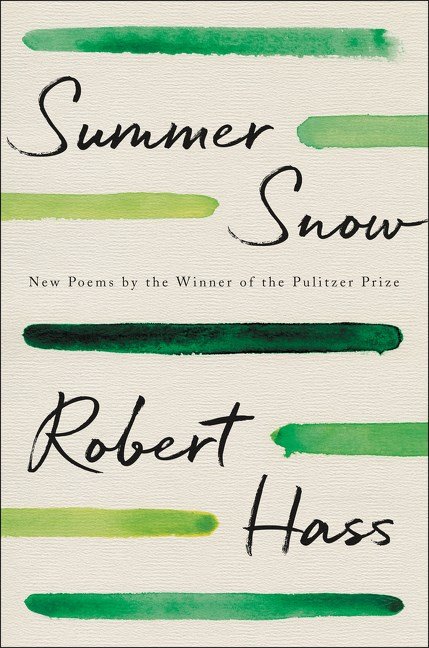
It? Jakuch? smeared a paste of egg yolk
And white paint on the back of his scrolls
And then crushed oyster shell to another paste
And added carmine for the rooster’s crest
He painted into the soft silk.
Smuggled Prussian blues from Europe (There was a Tokugawa trade embargo)
For the way light looked on plums.
I'm not a vast lover of poetry.
Naturally, that fact is not due to poetry, but to how I have found poetry; it's all in my head, as with my inability to love fusion jazz, mud, and war.
OK, fair enough; I do love some jazz.
What I do have an issue with is when poets use hard words or obtuse references that don't really pay off.
On the other hand, I do like it when poets use words for perfect fit.
I've not read anything that Hass has written previously, but the introduction to this book, which is a collection of poems as divided into several different parts, made me doubt that I would enjoy it; name- and place-dropping littered the initial poems, which gives off an iffy scent that signals "I am learned. I am good at what I do. See my excellence."
To myself, that is.
Hass's style changes dramatically from the poems that are about Afghanistan and the Soviet Union. Those longer, more in-depth ones, where Hass has shed the name-dropping, that's lovely. For example:
And if you read good books well, it will wake in you
A desire to say what you mean.
At least it did in me.
The things that you read that matter to you,
The things they call your influences,
are the books That introduce you to yourself,
and they will lead,
Or ought to, to a patient persistent attempt
To say what you mean.”
Another note reads: “You have to write blind to eventually see clearly
What your subject is.”
A close, humid room
In the middle of Tennessee in the middle of July.
Outside you could not tell if the green hum
In the old live oaks was generating the insect buzz
Or the buzz was generating the green humming
In the air that was indistinguishable,
When you walked in it, from the soaked
Odor of the summer grass.
I was an outsider
To what I took to be this transaction in heritage.
It's a calm, long gaze into a field of green, this is. If I forget the first fifth of the book, which I nearly do, I will be left with the memory of a poetry collection that is both potent and rises. At its worst, this book is a bit haughty to me, but then again, I don't get fusion jazz.
Posted from my blog with SteemPress : https://niklasblog.com/?p=23373